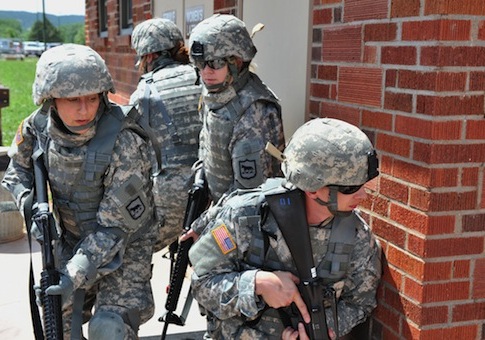Special operations forces are reevaluating the standards for admission into their elite ranks in order to determine if women can join, the top special operations commander testified on Wednesday afternoon.
The military lifted the ban on women serving in combat roles in January, allowing women to serve in the infantry.
The elite special operations units such as the Navy SEALS and the Army Rangers are now in the process of determining if women can join their ranks.
Part of that process will include determining if the current standards for admission into the elite units are appropriate, Admiral William McRaven, the top commander of special operations units, testified before a subcommittee of the House Armed Services Committee.
"I get asked frequently, well, can you have gender-neutral standards? And I say, this is easy for me, because I’ve never had other genders," McRaven said. "There is only one standard. So, we need to find out, are those the appropriate standards, because we’ve built those standards over the years, and now we’ve got to test the value of those standards."
The special operations forces will examine if the current standards accurately reflect the needs of the forces, which could result in the standards being lowered because they are more difficult than the forces’ work requires.
"My point is, I will provide the secretary [of defense] a plan for determining how we’re going to get women into those" units, Mcraven continued. "But frankly, then I have to test the hypothesis … by going through and seeing if we can actually make that happen."
McRaven praised the work of women in the military, noting they go on missions while attached to infantry units quite often.
"We are putting them in harm’s way every single night," McRaven said.
Lawmakers also discussed other aspects of the special operations forces’ work at the hearing such as the command structure and potential future budgetary constraints.
